Click on images to enlarge
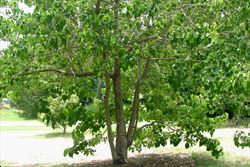
habit (Photo: Sheldon Navie)
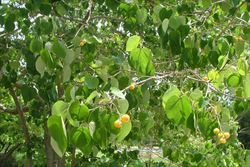
habit (Photo: Sheldon Navie)
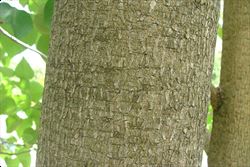
bark on main trunk (Photo: Sheldon Navie)
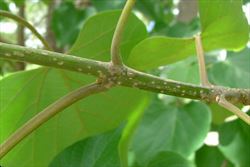
younger stem and leaf stalks (Photo: Sheldon Navie)
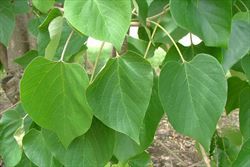
leaves (Photo: Sheldon Navie)
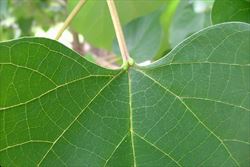
close-up of leaf base showing glands (Photo: Sheldon Navie)
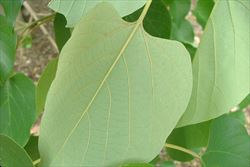
leaf undersides (Photo: Sheldon Navie)
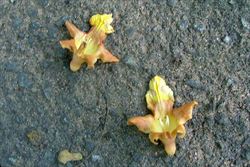
fallen flowers (Photo: Sheldon Navie)
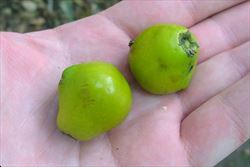
close-up of immature fruit (Photo: Sheldon Navie)
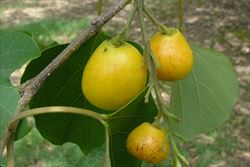
mature fruit (Photo: Sheldon Navie)
Scientific Name
Gmelina arborea Roxb.
Family
Lamiaceae (Queensland, New South Wales and Western Australia) Verbenaceae (Northern Territory)
Common Names
gamhar, gmelina, gumhar, Malay beechwood, Malay bush beech, Malay bush-beech, snapdragon tree, white beech, white tea, yemane, yemani
Origin
Native to the Indian Sub-continent (i.e. Bangladesh, Bhutan, India, Nepal, Pakistan and Sri Lanka), southern China and south-eastern Asia (i.e. Laos, Myanmar, Thailand, Vietnam, Indonesia, Malaysia and the Philippines).
Naturalised Distribution
Naturalised in some parts of northern Australia (i.e. in the northern parts of the Northern Territory and in northern Queensland).
Also naturalised elsewhere in the tropical regions of the world.
Notes
White teak (Gmelina arborea) is regarded as an environmental weed in the Northern Territory and as a potential environmental weed in Queensland. It has been grown as an ornamental and shade tree, and occasionally also in forestry plantations. This species is naturalising from settlements in the tropical savannas of the Northern Territory and is actively managed by community groups in this region. White teak (Gmelina arborea) is also listed as a high priority weed in Aboriginal lands in the Northern Land Council area, and is of particular concern in Maningrida, in Arnhem Land.
White teak (Gmelina arborea) has also become naturalised at a few locations in the Cook district in far northern Queensland (e.g. it is established at Emerald Creek on the Atherton Tableland).

